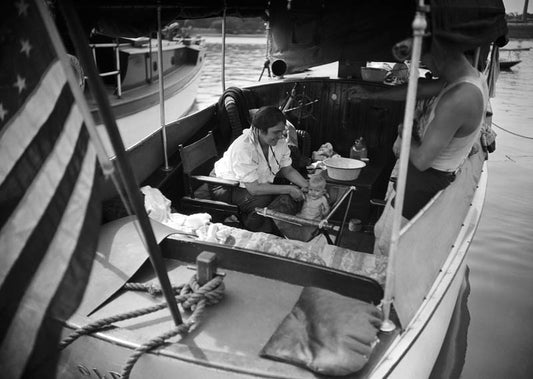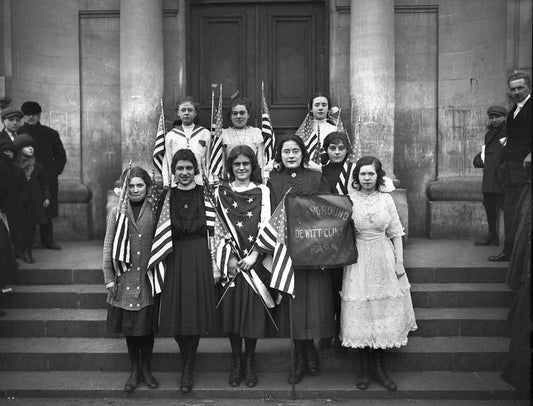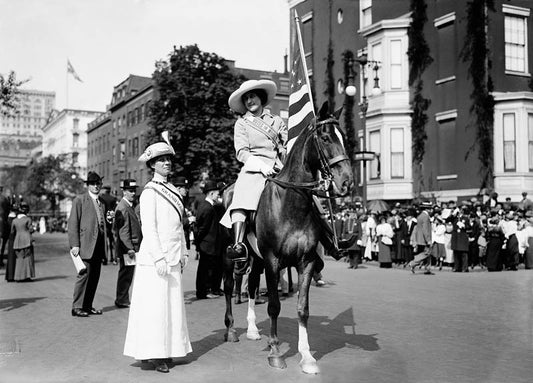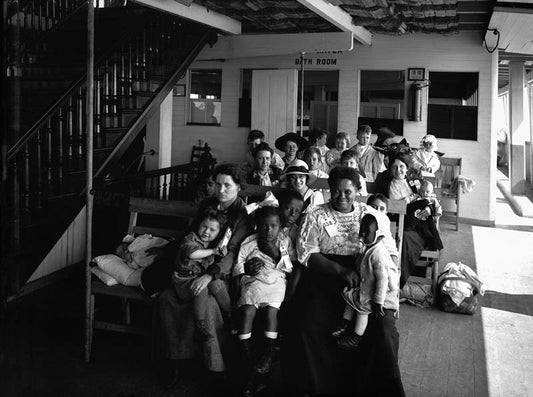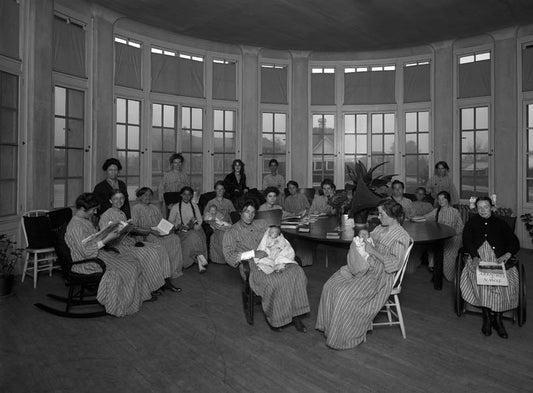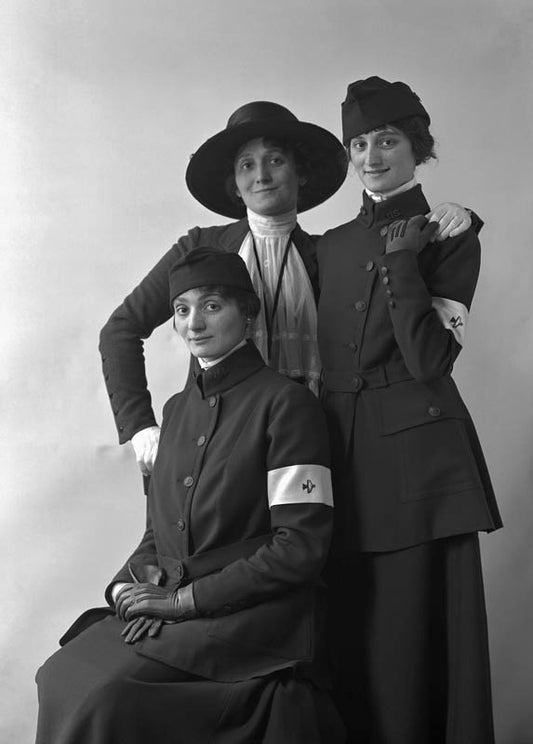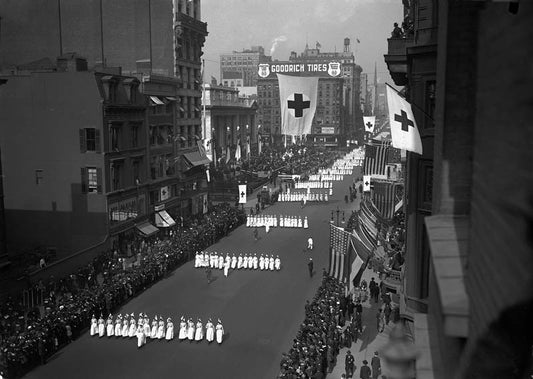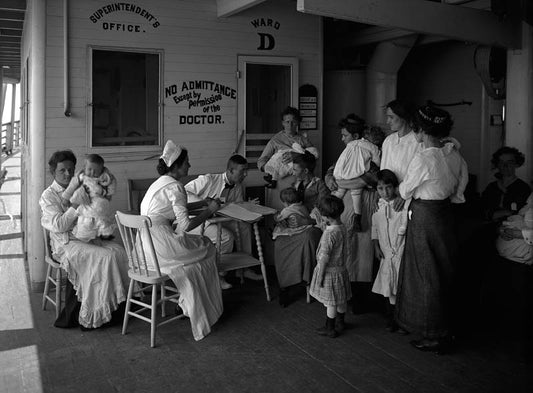Collection: Women and the Work of Caring
Morris Rosenfeld established his business at the end of the Progressive Era (1890 - 1920), a time of great contradictions. The wealthy sported at golfing and polo, while the poor struggled to meet basic needs of food, shelter, and health. A Jewish immigrant himself, Morris sat on the edges of both worlds—photographing the most elegant yachts for private commissions, but also capturing on film the experiences of poor women and children receiving private assistance.
By World War I, American women were seen as responsible for the nation’s welfare. Care work -- whether in the form of housework, child care, nursing, teaching, or social work -- dovetailed with women’s perceived nurturing spirit. While this stereotype was limiting, it also made women’s role in civic and political life possible. Combining his artistic eye with commercial interests, Morris Rosenfeld captured images of women as care workers - at home, in the streets, with the American Red Cross, and the New York Floating Hospital.
-
The Baby Bath, 1921
Regular price From $125.00Regular priceUnit price / per -
DeWitt Clinton Park School, 1917
Regular price From $125.00Regular priceUnit price / per -
Misses Beiderhase and Milholland, 1912
Regular price From $125.00Regular priceUnit price / per -
Waiting Room: The Helen C. Julliard, 1914
Regular price From $125.00Regular priceUnit price / per -
Women and Infants Ward, 1920
Regular price From $125.00Regular priceUnit price / per -
Telephone Operators in U.S. Uniform, 1917
Regular price From $125.00Regular priceUnit price / per -
American Red Cross Parade, 1917
Regular price From $125.00Regular priceUnit price / per -
The Helen C. Julliard, 1914
Regular price From $125.00Regular priceUnit price / per

